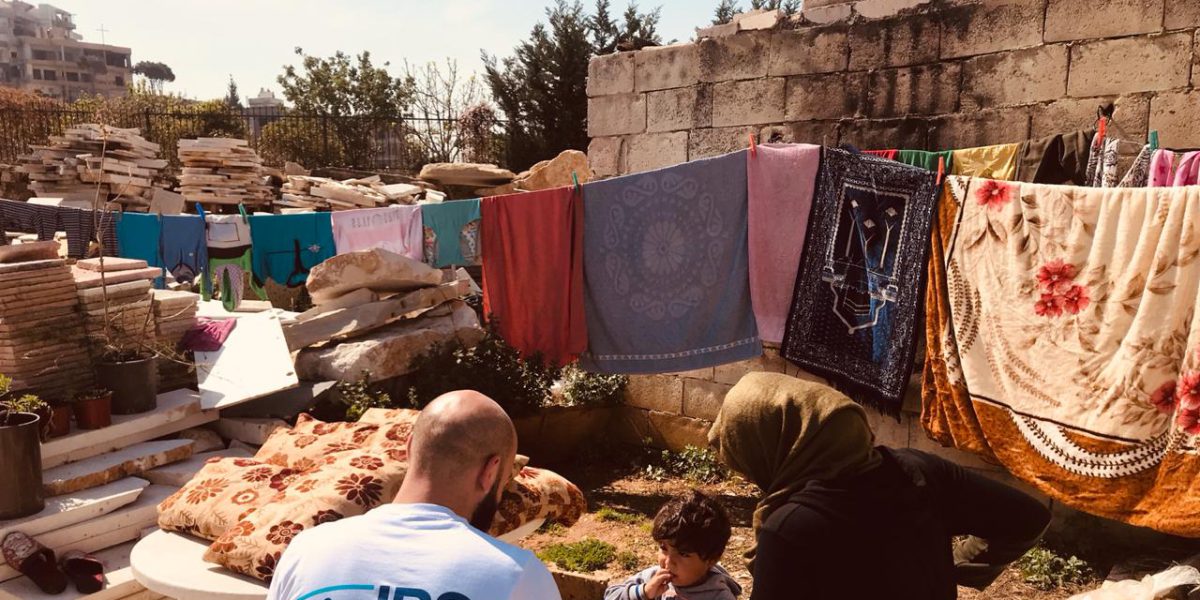
Ranked 161st out of 192 nations in its readiness to confront the challenges of climate change and associated damages, Lebanon stands at an intersection between environmental vulnerability, financial ruin, and pressing humanitarian crises.
In this final installment of Change the Tide, we travel to Lebanon to understand how climate intersects with economic downturns and geopolitical tensions.
A nation already dealing with the impacts of climate change and a weakening economy, Lebanon also has the immense responsibility of hosting the largest per capita refugee population globally.
Across the broader Middle East and North Africa (MENA) region, nations confront several environmental challenges ranging from prolonged droughts and devastating floods to acute water shortages and pervasive air pollution, all exacerbated by rising temperatures. Despite the gravity of these challenges, the MENA region remains disproportionately underserved in terms of global, humanitarian funds to support climate mitigation and adaptation efforts, further exacerbating the region’s vulnerability.
The Lebanese Ministry of Environment projects a decline of up to 32% in GDP by 2080, attributed directly to the impacts of climate change.
Water scarcity breaks down agricultural productivity and extreme heat strains the country’s energy, impeding the ability of businesses and essential services to meet burgeoning demands.
Wildfires have now also caused, fear, danger, and displacement across northern Lebanon. Furthermore, the harsh realities of winter were laid bare during the unprecedented cold spells and snowstorms of the previous year, disproportionately affecting vulnerable refugee populations.
These vulnerabilities were exacerbated by the earthquakes in Syria and Turkey in February 2023. “We are talking about under zero degrees Celsius in temperature during the night…it is the worst moment of the year, and the earthquakes came in the worst week of winter,” the JRS MENA Communications Officer said at the time.
In the face of such adversities, initiatives like the distribution of food baskets and fuel vouchers in locales such as Bar Elias offer a glimmer of hope amidst the bleakness, demonstrating tangible efforts to alleviate the suffering of marginalized communities.
Jesuit Refugee Service is present in Bar Elias, Bourj Hammoud, Beirut, and Baalbeck. We accompany refugees through formal and informal education programs, mental health and psychosocial support (MHPSS), the distribution of emergency aid, and centers for refugee women.
Moe* is a young boy and ISIS survivor who lives with his family in Beirut. They fled Syria and since arriving in Lebanon, Moe has experienced challenging mental health issues as he struggled to cope with the horrors he had witnessed. 
JRS enrolled Moe in their MHPSS program where he was able to work with a child psychologist. He and his family experienced compounding challenges in Lebanon as violence, including the 2020 bombing in Beirut, financial decline, and severe climate impacts have damaged the country. But, amidst these challenges, Moe, and other children like him, have shown remarkable resilience and have been able to heal.
“My son has made significant progress. He no longer has nightmares. He is at ease and enjoys playing with his sisters. Thank you, JRS Lebanon, from the bottom of my heart,” his father said.
While the challenges confronting Lebanon and the broader MENA region may appear daunting and intractable, the people within our JRS community serve as testaments to the indomitable human spirit and the power of collective action.
As we conclude Change the Tide and this four-part examination of climate displacement, let us remain steadfast in our commitment to effecting meaningful change. Here’s how you can help:
- Send a message to your representative urging them to cosponsor the Climate Displaced Persons Act which would provide more equitable immigration pathways for people displaced by climate change.
- Donate today to JRS programs where we are working on the front lines of climate displacement and meeting refugees’ basic needs.
- Host an information session, Walk a Mile in My Shoes or Journey into Exile to educate your community about the experience of refugees. JRS/USA’s Outreach team has prepared materials to get you started.
- Pray for hope and resilience for refugees and for healing for our earth.
*Name changed to protect privacy and security.



